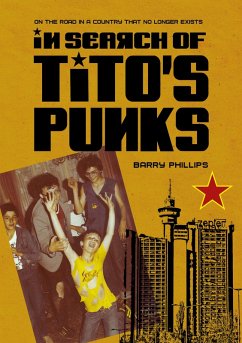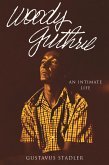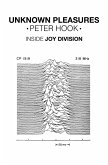A look at the vibrant punk scene that exploded in Yugoslavia during Marshal Josip Broz Tito's final years.
In 1981, Demob, a young multiracial punk rock band from a stagnating provincial English city, recorded 'No Room For You,' a song that sold a few thousand copies before fading into history. The bass player was eighteen-year-old Barry Phillips, and in 2011, he received a Facebook message letting him know that the song was famous throughout the Balkans and had been covered by notable Yugoslavian punk bands. Hoping to understand how Demob's song had taken root in the communist-era Balkans, Phillips traveled to the former Yugoslavia to learn about the punk scene that emerged in the waning years of Josip Broz Tito's rule. From Ljubljana to Rijeka to Novi Sad, Yugoslavia boasted one of the most dynamic punk rock and new wave scenes in the world. Rooted not only in western punk rock but also local Balkan folk music, its regional varieties each had a discernible DNA fused with Slavonian Tamburitza, Bosnian Sevdah, or the Dalmatian a cappella, Klapa.
In Search of Tito's Punks includes interviews with Pankrti (Bastards), Darko Rundek, KUD Idijoti (Cultural Idiots), KBO!, Atheist Rap, and other heroes of Yugoslavian punk and post-punk music, as well as cultural commentators, journalists, filmmakers, authors, and punks. Phillips learns of border "walls" and Brutalism, discovers the world's first fascist micro-state, sees the legacy of the NATO bombings and the impact of "turbo-capitalism," and hears the recurrent echoes of genocides and the Holocaust. He also describes a gig where the entire village, including the mayor, came out to party with punks, and uncovers an unlikely relationship between Yugoslav music fans and an independent record shop in Wales.
In 1981, Demob, a young multiracial punk rock band from a stagnating provincial English city, recorded 'No Room For You,' a song that sold a few thousand copies before fading into history. The bass player was eighteen-year-old Barry Phillips, and in 2011, he received a Facebook message letting him know that the song was famous throughout the Balkans and had been covered by notable Yugoslavian punk bands. Hoping to understand how Demob's song had taken root in the communist-era Balkans, Phillips traveled to the former Yugoslavia to learn about the punk scene that emerged in the waning years of Josip Broz Tito's rule. From Ljubljana to Rijeka to Novi Sad, Yugoslavia boasted one of the most dynamic punk rock and new wave scenes in the world. Rooted not only in western punk rock but also local Balkan folk music, its regional varieties each had a discernible DNA fused with Slavonian Tamburitza, Bosnian Sevdah, or the Dalmatian a cappella, Klapa.
In Search of Tito's Punks includes interviews with Pankrti (Bastards), Darko Rundek, KUD Idijoti (Cultural Idiots), KBO!, Atheist Rap, and other heroes of Yugoslavian punk and post-punk music, as well as cultural commentators, journalists, filmmakers, authors, and punks. Phillips learns of border "walls" and Brutalism, discovers the world's first fascist micro-state, sees the legacy of the NATO bombings and the impact of "turbo-capitalism," and hears the recurrent echoes of genocides and the Holocaust. He also describes a gig where the entire village, including the mayor, came out to party with punks, and uncovers an unlikely relationship between Yugoslav music fans and an independent record shop in Wales.
Dieser Download kann aus rechtlichen Gründen nur mit Rechnungsadresse in A, D ausgeliefert werden.









